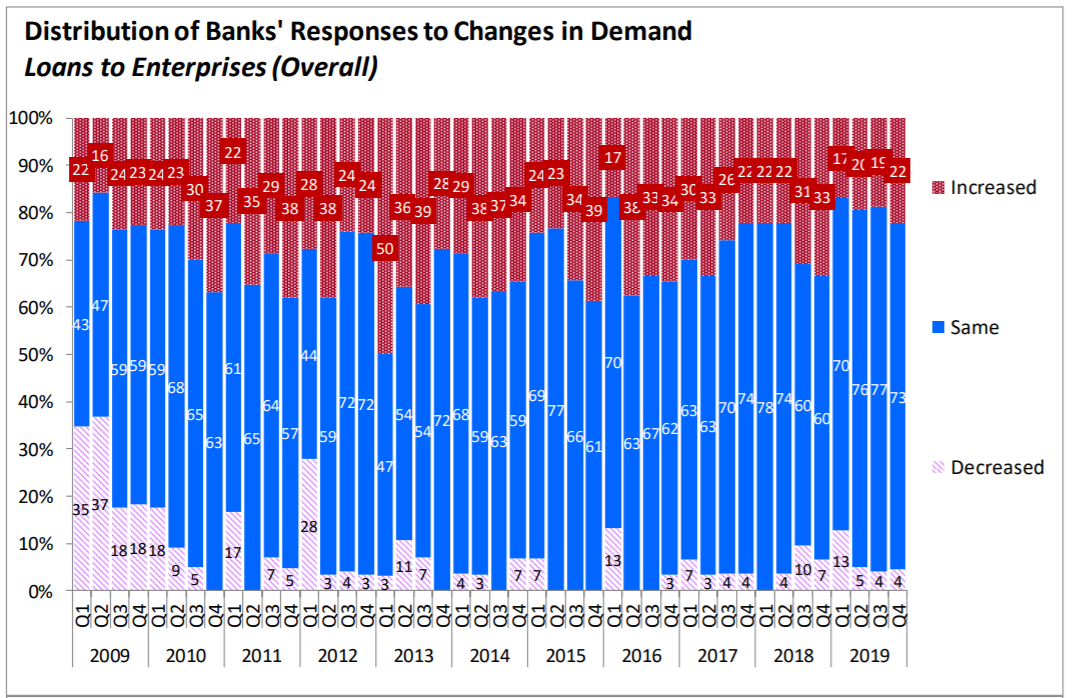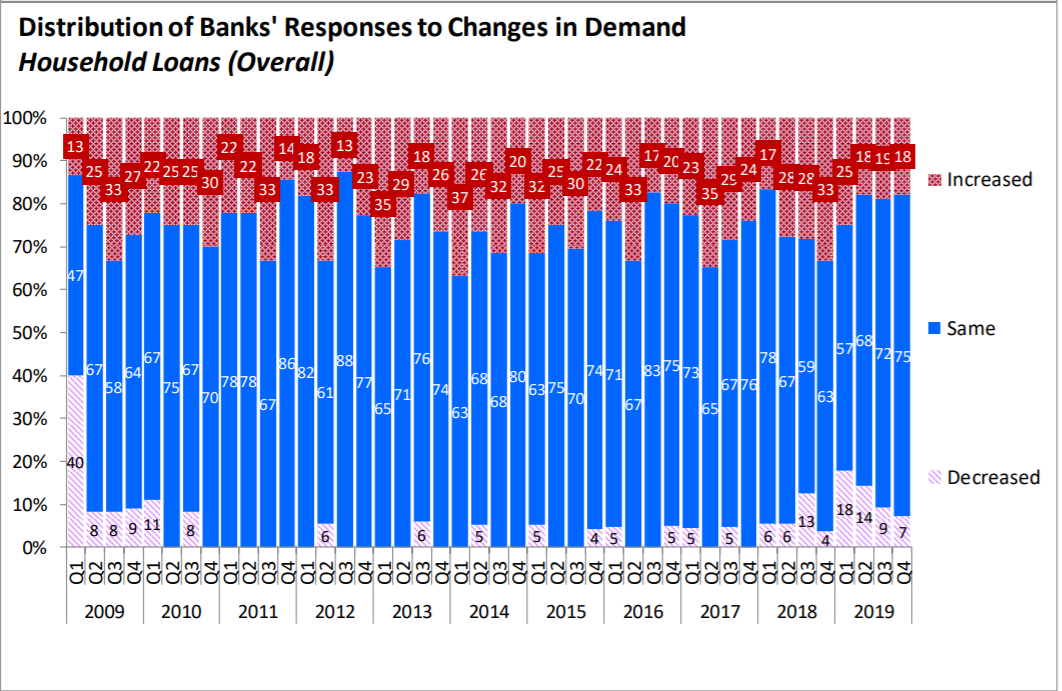MONDAY MACRO: This survey has historically been a very early signal for recessions. Will its next update still warrant 7% corporate profitability?

Surveys are used to determine people’s opinions about a specific topic. It is particularly useful to determine characteristics or opinions of a sample size that could be representative of a much larger group.
The most common place we see surveys are in restaurants, who use surveys to know what customers think about their service and food, as well as which areas need improvement.
In banking and finance, one survey is given out periodically by central banks to help understand how banks set their standards in lending loans. This is especially important in the next few quarters, with the current situation the world is facing now.
Philippine Markets Daily:
The Monday Macro Report
Powered by Valens Research
Last February, the Bangko Sentral ng Pilipinas (BSP) decided to cut rates by 25bps to discourage hot money flowing into the country.
The BSP slashed rates again by 50bps on March 20, in order to combat the impact of the coronavirus pandemic on the slowing economy. It is widely believed that the BSP still has enough monetary space to trim key rates by another 50bps to 2.75% in order to support the Philippine peso and pull more foreign investments amidst a risk-off environment.
We mentioned in our Monday Macro Report on Philippine corporate profitability how lower interest rates means a lower cost to borrow. This is ideal for boosting business expansion and consumer spending.
However, even with lower borrowing costs, companies might still find it difficult to borrow money in the near term because banks may be reluctant to lend in a slowing economy.
If banks tighten their standards for borrowing and make it more challenging to access money, many companies would have a harder time investing in growth. The funds that they have would go to running the business in its current state, which would likely limit earnings growth.
One way to understand credit standards is through this BSP-conducted survey.
The Senior Bank Loan Officers’ Survey (SLOS) is conducted by the BSP quarterly to enhance its understanding of banks’ lending behavior, which is an important indicator of the strength of credit activity in the country.
The survey helps the BSP assess the robustness of demand conditions, potential risks in the asset markets, and the overall strength of bank lending as a transmission channel of monetary policy.
Bank respondents choose whether they somewhat increased, considerably increased, somewhat decreased, considerably decreased, or maintained their lending standards.
The chart below shows banks’ response to the SLOS with regard to changes in demand for loans to enterprises as of Q4 2019.

The red bars above indicate that 22% of respondent banks “somewhat increased” their lending of loans to enterprises since the previous quarter.
The blue bars in the middle indicate that 73% of banks decided to maintain their credit standards for the quarter.
Finally, the purple bars show that 4% of banks decreased either “somewhat” or “considerably” their lending of loans to enterprises.
With regard to the changes in demand for loans to households, results of the Q4 2019 SLOS showed that most of the respondent banks also maintained their overall credit standards.

This is the 43rd consecutive quarter since Q2 2009 that the majority of respondent banks reported broadly unchanged credit standards.
The effects from the COVID-19 pandemic were not factored into this latest SLOS, but we should be able to see what banks think by the next SLOS. This survey has become even more important in the face of economic uncertainty.
The US also has its own version of SLOS called Senior Loan Officer Opinion Survey (SLOOS).
In the United States, lending standards tightened modestly in Q3 and Q4 2019, which initially appears to be a cause for concern, but standards remained very easy ahead of the coronavirus pandemic.
Historically, tighter credit standards has been a very early signal. It normally signals that a recession will occur in two to four years because tighter credit standards could subdue growth potential.
Our Monday Macro Report on the Philippines’ interest coverage ratio shows that it is still at a level comfortable enough for firms to continue their operations without defaulting on their loans.
Together with the absence of looming credit failures on Philippine banks or corporations, as well as the BSP’s additional monetary tools to support domestic liquidity and economic activity, the Philippines has the capability to pacify recession fears and minimize the pandemic’s impact.
About the Philippine Markets Daily
“The Monday Macro Report”
When just about anyone can post just about anything online, it gets increasingly difficult for an individual investor to sift through the plethora of information available.
Investors need a tool that will help them cut through any biased or misleading information and dive straight into reliable and useful data.
Every Monday, we publish an interesting chart on the Philippine economy and stock market. We highlight data that investors would normally look at, but through the lens of Uniform Accounting, a powerful tool that gets investors closer to understanding the economic reality of firms.
Understanding what kind of market we are in, what leading indicators we should be looking at, and what market expectations are, will make investing a less monumental task than finding a needle in a haystack.
Hope you’ve found this week’s macro chart interesting and insightful.
Stay tuned for next week’s Monday Macro report!
Regards,
Angelica Lim & Joel Litman
Research Director & Chief Investment Strategist
Philippine Markets Daily
Powered by Valens Research
www.valens-research.com




